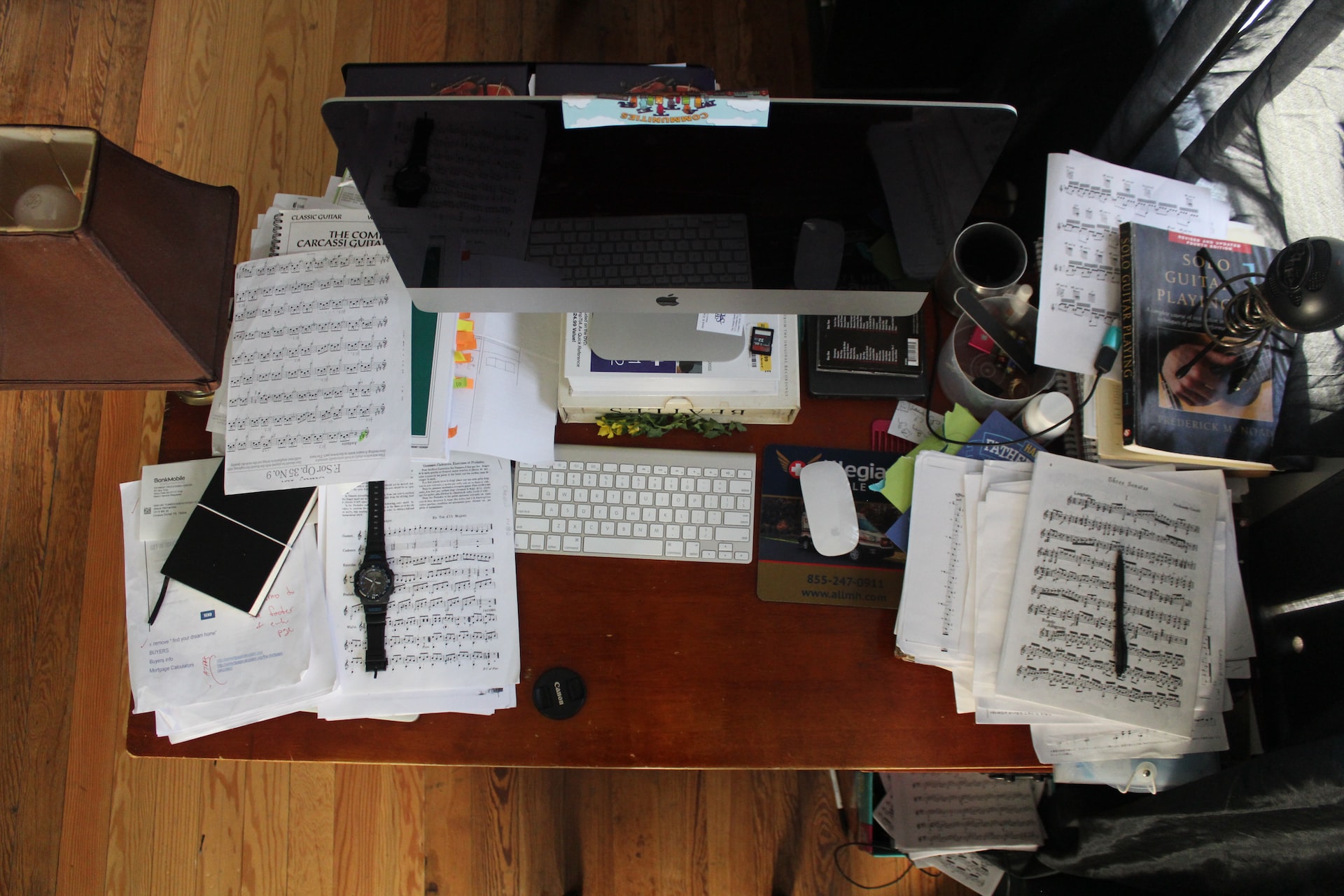Reducing clutter in your home or workplace isn’t just about how it looks; visual clutter can actually affect how your brain operates, and how you feel emotionally. Studies show that cutting clutter can lower stress levels and promote productivity and creativity. Decluttering is also important when prepping for a big move, or for listing your home as a short-term rental.
So, how do you get started decluttering, and how do you maintain it? Let’s dive into tips for how to cut the clutter and take a look at why it matters.
Contents
How to Reduce Clutter
If only it were as simple as renting a dumpster and hauling broken and old stuff out of the house. Unfortunately, our sentimental attachment to things can make it difficult to throw away, recycle, or sell items.
Many of us have the mentality that an object may be useful to us someday, so it’d be a shame to get rid of it now. Or we have so many belongings we don’t know where to start. Here are tips for paring down.
Lay It All Out
When it comes to decluttering, it has to get worse before it gets better! Pick an area of your home to start with, and lay out everything in a place where you can see it. Empty closets and drawers, and open up containers. Taking inventory of what you have is the crucial first step to cutting clutter. Sometimes the sight of every toy, book, or article of clothing is enough of a shock to get you motivated to minimize.
Sort It
Once you can see everything, it’s time to sort. You’ll want to designate areas for items you’re keeping, items you’re donating, items you’re selling, and items that are garbage. When you’ve decided items are going to leave your house, don’t put them in a box in the basement or garage! Take them straight to your car and to the dump, consignment shop, or wherever they can be recycled. Not sure how to decide if you should get rid of a perfectly good tool, outfit, or piece of furniture? Try implementing the 20/20 rule.
The 20/20 Rule
Minimalists Joshua Fields Millburn and Ryan Nicodemus recommend that you get rid of an item if you can replace it for less than $20 in 20 minutes. If you’re on the fence about whether or not an item should go, the 20/20 rule can be the deciding factor.
Corral It
Anything staying in the home needs to be corralled in a designated space. This could be a shelf, pantry, under the bed, or bins on a desktop. Contain like with like so it’s easy to find what you need and take stock. You may need to add more versatile storage to your space to help you find a place for everything, but it’ll be worth it.
How to Maintain the System
You’ve successfully done a purge of your home, and now it’s time to think about how you’ll maintain your clutter-free space.
One for One
A good rule is that for every item that comes into your home, one should leave. If you purchase a new outfit for work or the gym, get rid of one that’s been neglected in your closet for the last six months.
Everything In Its Place
Give everything a home, and practice putting things in their designated place after each use. As this becomes a habit, you’ll never misplace your keys again! Also, use labels to help everyone remember where everything goes.
Divide and Conquer
Have you ever heard of zone cleaning? If you live with multiple people, assign each person a zone to clean for the week. You can determine together whether the zone needs to be tidied throughout the week, or thoroughly cleaned each day. If you live alone, assign areas of your home to be tidied on a certain day of the week. Make Monday laundry day, Tuesday kitchen cleaning day, etc…
Unsubscribe and Digitize
Avoid letting the mail and artwork pile up on the counter! Unsubscribe to paper mailings and digitize any paperwork you need to keep. Photograph or scan children’s artwork or important documents so they can be saved digitally for future reference. If you have an extensive movie library, consider switching to digital downloads instead so you can get rid of the physical DVDs or Blueray discs. The same goes for books and music, too.
Learning to maintain a less cluttered lifestyle will take time, so remember to be patient with yourself and other members of your household.
Benefits of Reducing Clutter
Obviously, looking around your clutter-free space is a huge benefit to doing an audit of your belongings. But what are some of the other reasons decluttering matters?
Less Stress
So many of us are living with chronic stress these days. Work, school, and personal relationships pull us in all directions day in and day out. If you don’t have a serene place to call home, it can add to your stress levels. According to Corner Canyon Counseling, symptoms of chronic stress include:
- Difficulty concentrating
- Digestive problems
- Fatigue
- Hypertension
- Insomnia
- Irritability
- Physical pain
- Substance abuse
If getting rid of unnecessary possessions could potentially eliminate these symptoms from your life, why wouldn’t you make an effort to do so?
Improved Efficiency
If you’re planning to move, Western Elite recommends reducing clutter as the very first step in the process. Don’t waste resources moving items you’ll end up unpacking and throwing away on the other end! Be more efficient in your everyday life and before moving by reducing clutter.
Added Income
Selling items you no longer need is a great way to earn some extra cash, but have you ever thought about how it can turn your space into a short-term rental? Maybe it’s only practical for a vacation home, but having a clutter-free space can make it more appealing to renters. If you’re going to sublet or list your home on a site like Airbnb or VRBO, you’ll benefit from a minimalist aesthetic in the house.
If you’re not sure of the pros and cons of short-term rental properties, check out what property management company Rhino Property has to say HERE.
Hopefully, these tips and incentives help you get and stay motivated to live with less. Remember it takes time and that you can revisit systems of organization if they’re not working long-term for you.



